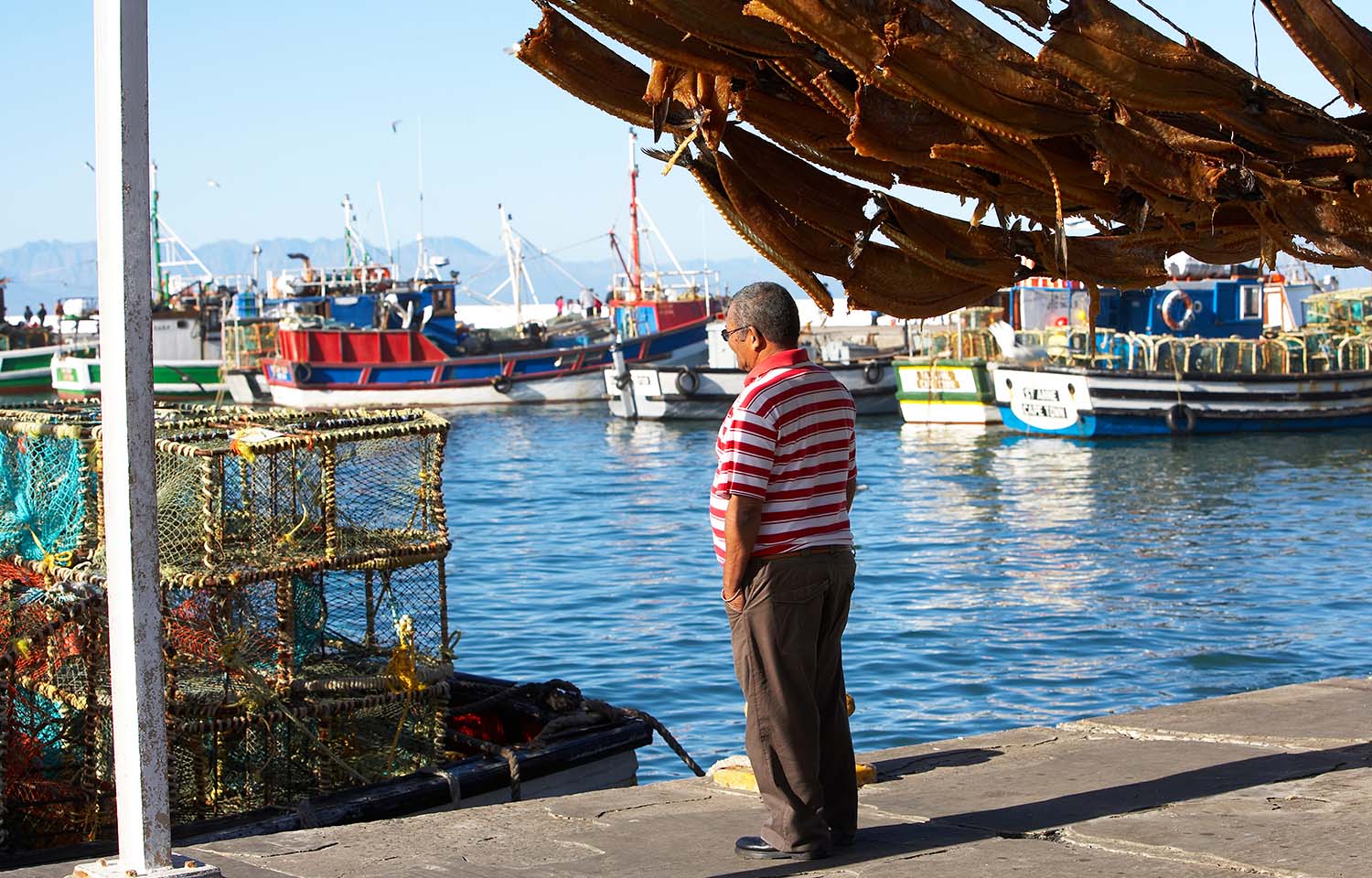A group of small-scale fishers in South Africa have accused the country’s Department of Forestry, Fisheries, and the Environment (DFFE) of corruption and discrimination through the deployment of its fishing rights allocation (FRA) system, claiming that they have been cast aside in attaining rights while those with upper-class connections in the country receive more favorable treatment.
The group, interviewed where they work in Cape Town’s Kalk Bay Harbor by local newspaper the Daily Maverick, mainly comprise Black and Indian fishers claiming the coastal communities where they live and make a living are often denied the permits needed to fish, sometimes leading to the collapse of generations-old fishing businesses.
They alleged the discrimination goes back to in 2005, when many were dispossessed of their fishing permits upon the introduction of the country’s new fisheries policy, which contained no quota provision for small-scale fishers.
Furthermore, they claim the process of applying for the FRA is shrouded in corruption and appears designed to lock out small-scale fishers. They criticized the system’s online application process as convoluted and frequently changing.
“The allocations are such a corrupt system. You have to tell your story to a quota board, but it’s no use because people with influence can buy quotas,” Tony Trimmel, a local fisher of Filipino descent, told the Daily Maverick. “People connected to politicians are the first recipients. You’re never going to be able to prove it, but everybody in the industry knows it, and the online license application system is a nightmare and stacked against us.”
In response, the South Africa DFFE denied all corruption and discrimination claims. It said its FRA system stems from the country’s Marine Living Resources Act (MLRA) of 1998, which requires the department to issue fishing rights to qualified applicants without discrimination.
DFFE Chief Director for Communication and Advocacy Peter Mbelengwa said the MLRA has been fundamental to granting fishing rights “since the promulgation of this act up until today.”
“The fishing rights system has not changed, and the MLRA makes provisions for three categories of fishing sectors: namely commercial, small-scale, and recreational,” he told SeafoodSource.
Mbelengwa said the DFFE has provided various avenues to enable engagement with small-scale fishers, should they encounter issues with the FRA process.
“The structure meets from time to time to provide advice to the minister for fisheries on matters relating to the fishing sector," he said.
Nevertheless, Mbelengwa acknowledged some incidents of corruption in the allocation of fishing rights have occured, but said the government has been combating corruption through existing legal frameworks and has pursuing charges against some of the department’s fisheries control officers (FCOs). He cited a case of seven FCOs convicted of engaging in suspect quota allocations in September 2023.
But Masifundise, a Cape Town-based NGO that works closely with small-scale fisheries across South Africa, said DFFE's problems are unlikely to disappear anytime soon. It expressed concern about mounting complaints of corruption in the FRA process.
“There is no doubt corruption is rife in the Fisheries Department when it comes to the allocation of fishing rights," it said.
Masifundise Director Naseegh Jaffer said a major problem with the FRA system is a ...
Photo courtesy of the John Martin Media/Shutterstock








